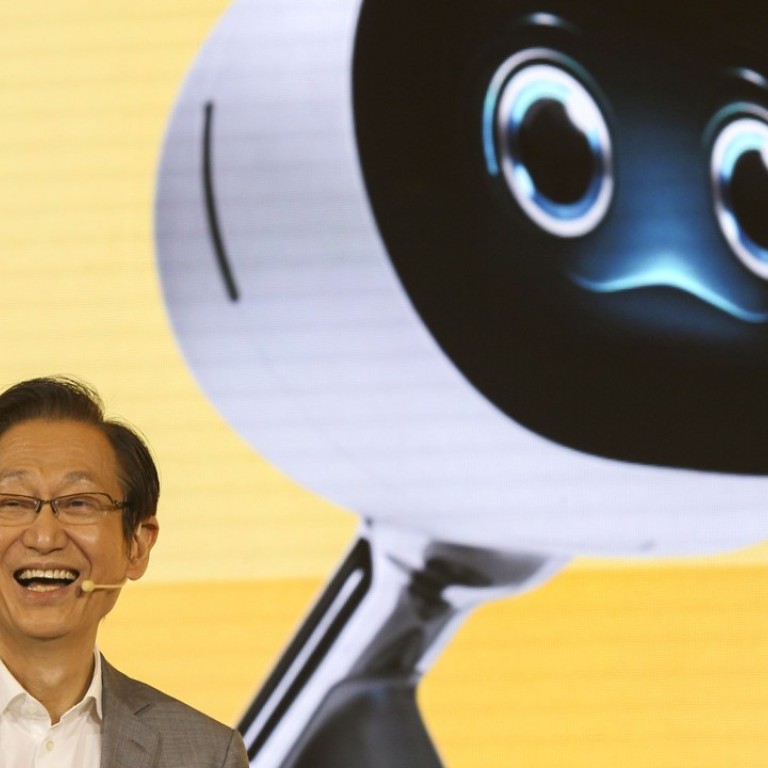
Check out China’s US$1,000 companion droid for the home. Perfect for grandma?
The latest addition to the fast-growing home companion-robot market can read bedtime stories to toddlers or help the elderly find their favourite radio channel
China’s time-starved city dwellers just got more choice when it comes to robotic help, with tech giant Tencent entering the fast-growing market for internet-enabled home assistants with a droid that looks like a cross between Eve from the Wall-E animated movie and Steven Spielberg’s E.T.
Called Zenbo Qrobot, or “small cloth” in Chinese, the robot is made by Taiwan’s Asus and powered by Shenzhen-based social media and gaming giant Tencent, and retails from 6,999 yuan (US$1,051).
With a wide rectangular head, pencil-thin neck and roundish body on two wheels, Zenbo was designed to appeal to children and to be a companion to the elderly. First introduced in Taiwan last year, the version made for mainland China will be installed with Tencent’s smart system, which has large amounts of data such as music, news and videos.
Companion robots and smart home assistants are the latest battleground for tech giants seeking to meld advanced functionalities such as artificial intelligence, voice and facial recognition, with hardware. The aim: attract and lock in as many of China’s growing number of affluent consumers on their platforms.
Tencent has said it would boost its investment in AI, despite being a late comer in the market, compared to its rivals such as the country’s leading search engine Baidu and e-commerce heavyweight Alibaba, which owns the South China Morning Post.
China’s State Council laid out goals in July to build a domestic artificial intelligence industry worth nearly US$150 billion in the next few years, and to make the country a hub of innovation for AI by 2030.
Besides sharing similar qualities as Apple’s voice assistant Siri and Amazon’s AI speaker Echo, Zenbo can move about on its own two wheels and interact with its surroundings. Asus is also partnering with several content and service providers such as Koolearn, an online education network based in Beijing, to extend Zenbo’s services to include language learning.
Tencent Cloud’s vice-president Xu Jingwen, who was at the launch in Beijing with Asus chairman Jonney Shih, said the firm had been working with Asus for six months for the China release.
“This is our first collaboration with Asus developing smart home robots,” Xu said. “ We’ve seen Asus’s capability in researching and developing artificial intelligence for the future.”
With a built-in camera, Zenbo can monitor the home, make video calls, use social media, shop online and stream movies and TV shows based on voice commands and guided help. It can even tell bedtime stories for children, take photographs, play music, and control many smart-home devices.
What it can’t do, though, is the ironing or walk the dog. That, for now, still requires a human touch.

